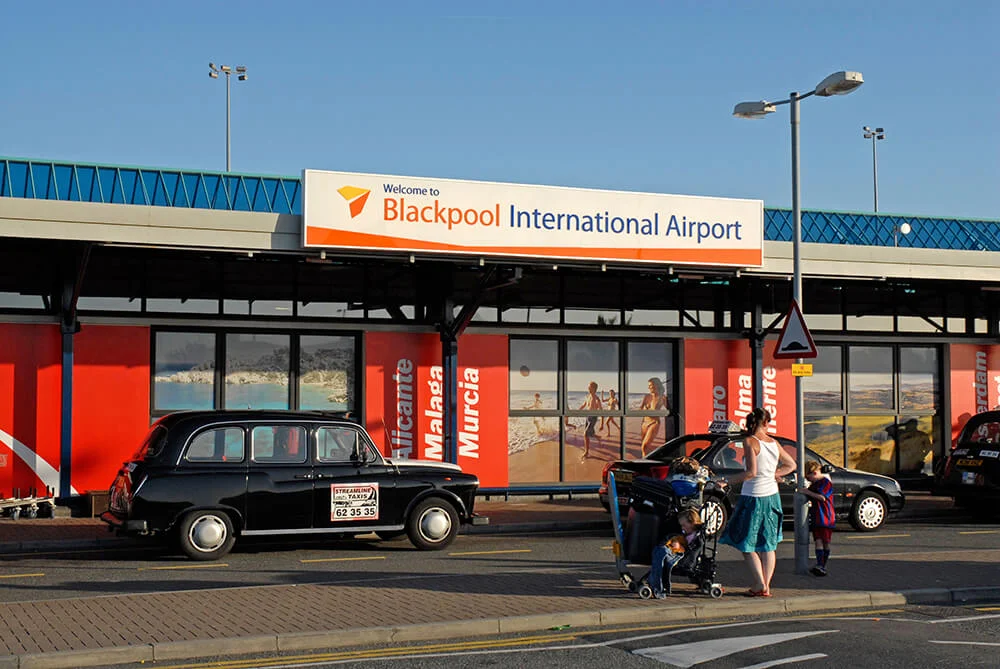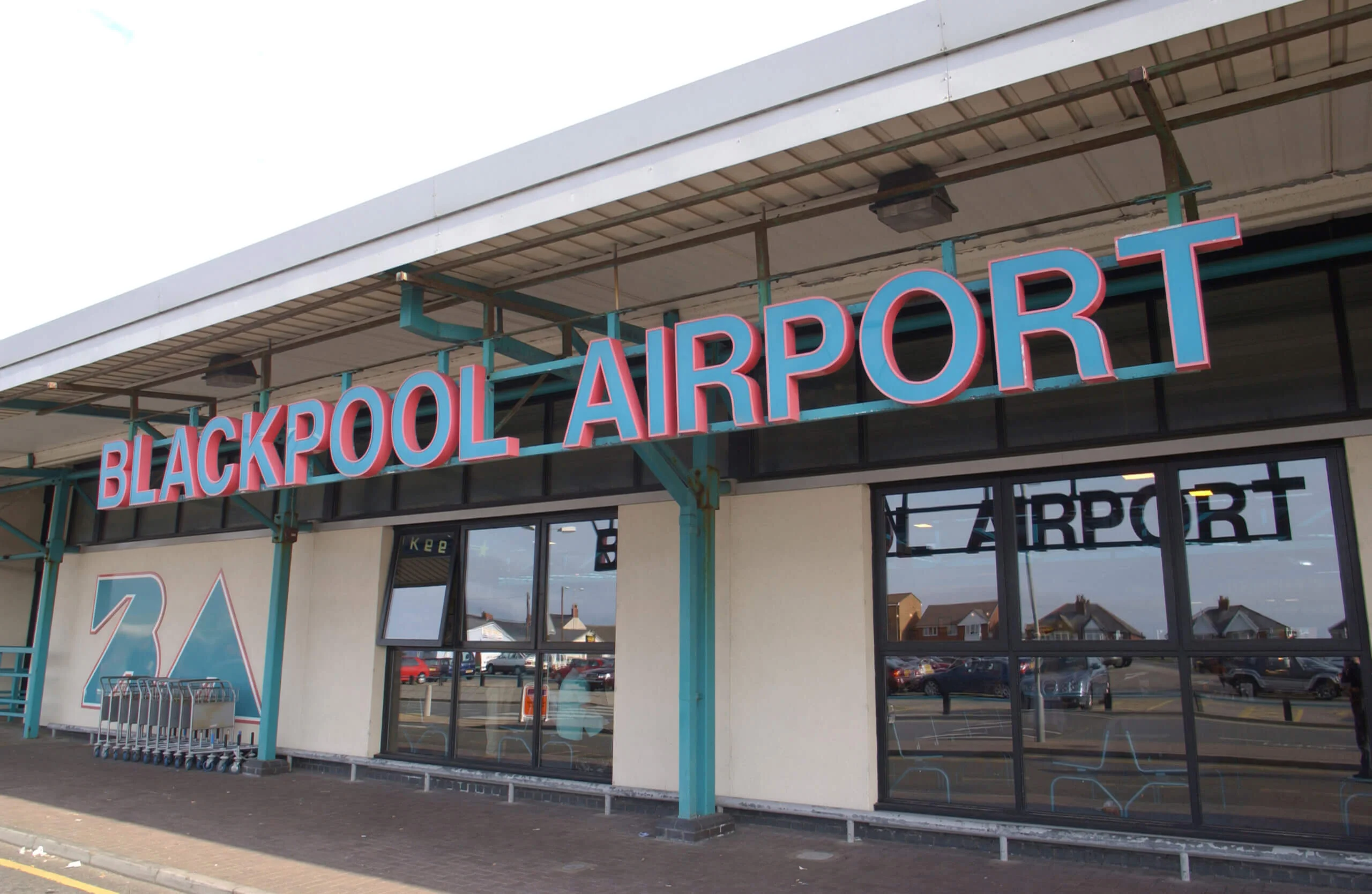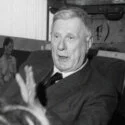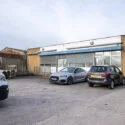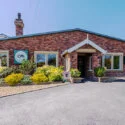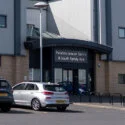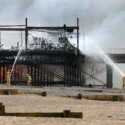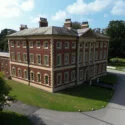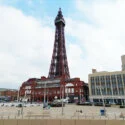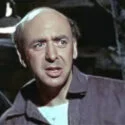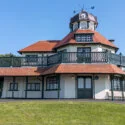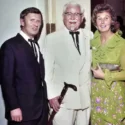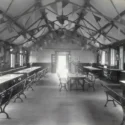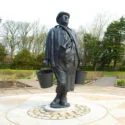Blackpool Airport in Lancashire, England, has been around since it opened in 1909. It played a key role during both World Wars and hosted various airlines over the years. It stopped handling commercial passenger flights on 15 October 2014 due to financial losses and the inability to find a buyer to keep it running. The airport had been losing money for a long time, and its owners, Balfour Beatty, decided to close it after failing to find a suitable investor. This resulted in job losses and inconvenience for passengers flying to destinations like the Isle of Man, Dublin, and Belfast.
Even though commercial flights ended, Blackpool Airport still operates for general aviation, including private flights, flight training, and air ambulance services. It continues to support offshore helicopter flights for the oil and gas industry in the Irish Sea. In 2017, Blackpool Council and Fylde Borough Council bought the airport back from Balfour Beatty for £4.25 million. They have since invested in upgrades to attract more business and general aviation.
Now, Blackpool Airport mainly handles general aviation, private charters, and offshore helicopter flights. While there have been discussions about reintroducing some commercial flights, it hasn’t returned to its previous levels of passenger service. Blackpool Airport remains one of the oldest airports in the UK and is an important part of regional development and connectivity. Its terminal and control tower are notable landmarks of its rich aviation history.
There’s more airport history at Blackpool Airport’s 100-Year Milestone and 1909 Pilots Henri Farman and Louis Paulhan.
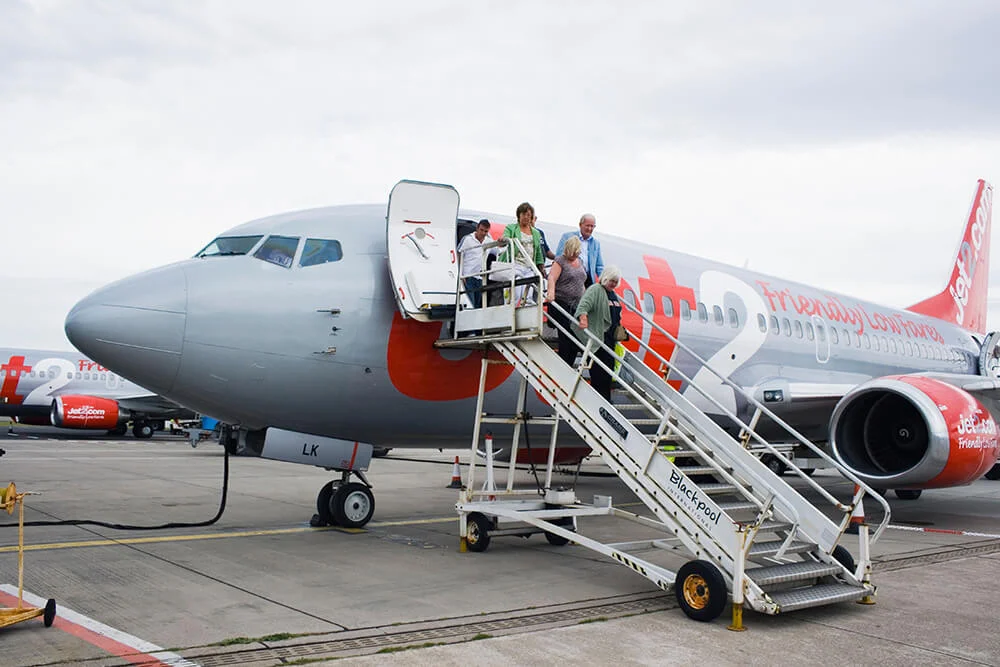
Tourists disembarking from Jet2 plane at Blackpool Airport.
